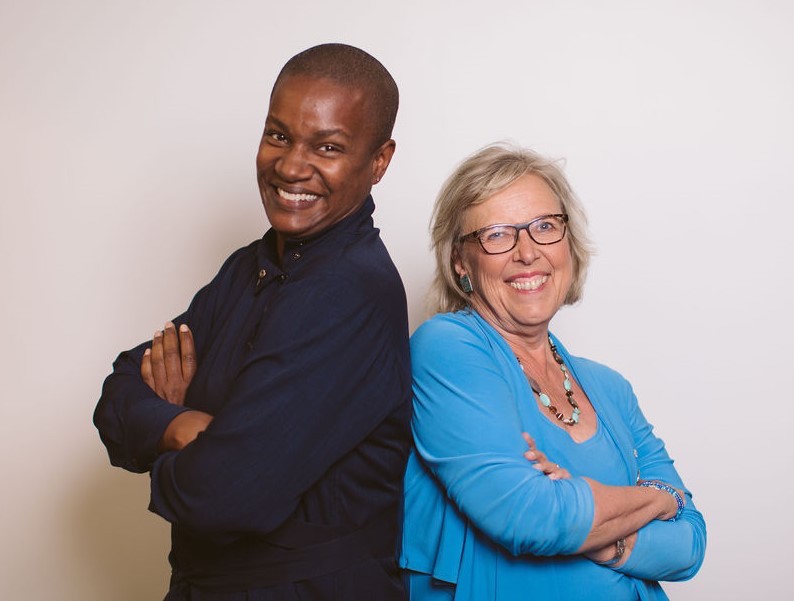Annamie Paul, a fluently bilingual lawyer who is the daughter of Caribbean immigrants, was elected the ninth leader of the Green Party of Canada on Saturday. She is the first Black leader of a major federal party and the second person of colour after NDP Leader Jagmeet Singh’s leadership win in 2017. Paul is also only the second federal Jewish political leader; David Lewis was the first when he was chosen to lead the NDP in 1971.
But she won’t have time to savour her historic victory.
She has three weeks to convince voters of the federal riding of Toronto Centre to choose her as their new MP in an Oct. 26 byelection.
In an interview with The Tyee on Sunday, Paul said the campaign gives an opportunity to show the rest of Canada her priorities as Green leader through the lens of the issues facing the riding.
“This is a seat that the Liberals have held for a really, really long time, and have overseen a steady decline in Toronto Centre over the years,” she said. “Every single quality-of-life indicator is worse — whether you’re talking about crime, the opioid epidemic, affordability.
“I think that the pandemic made that even more obvious. Homelessness has spiked, the opioid epidemic has spiked — and I believe that this is a time when the people in Toronto Centre are going to be looking for change, looking for someone and a party who puts them first. My hope is that will be enough for them to choose something different this time.”
Systemic racism in policing must be addressed, said Paul, who was subjected to a racial slur from someone using the N-word several times during a virtual Green party leadership candidate town hall in July.
“This is why diverse representation matters,” she explained. “We all bring our lived experience, in addition to our professional experience and education, to our political lives. When you’re developing policy that particularly impacts communities, you’re far less likely to create public policy that has huge vacuums or gaping holes in it if the people who are going to be most affected by it are actually part of creating that policy.
“We have this very bad habit, unfortunately, in Canada for creating policies for communities where they have no participation in the process, and then consulting them about it retroactively. The only option they have is to comment on something that is already being done, supposedly, on their behalf.
“So by electing and having true diverse leadership from the very beginning of the process, we’re far less likely to have bad public policy. It’s an avoidable problem that we have in Canada, given how much diversity we have.”
One of Paul’s significant allies in creating Green policy going forward will be her predecessor, Elizabeth May, who led the party for 13 years until last year when she stepped down to become the Greens’ parliamentary leader in the Commons.
“Elizabeth is one of the reasons why I joined the party last year,” Paul explained. “Beyond looking at the constitution and bylaws of parties, I wanted to be inspired by the leadership and Elizabeth’s inspired me.
“I don’t have to tell you about her depth and breadth of policy knowledge, and her compassion and energy and creativity that she brought to the role. We grew from 6,000 members to 24,000 members under her leadership and got three seats in Parliament.
“I’m a super-fan, and one of the things I’m excited about is the opportunity to work with her, and the chance to be able to tap into her institutional knowledge of the party, of politics and Parliament, and to work with someone who is passionate about the party and about creating good public policy to meet the real and urgent needs of the people of Canada.”

The Toronto Centre byelection will decide who replaces former finance minister Bill Morneau as MP. Liberals have held the riding since former cabinet minister Bill Graham won it from the Progressive Conservatives in 1993.
Current Liberal candidate Marci Ien, who is Black, brings star power, as co-host of CTV’s daytime talk show, The Social, to the race.
The contest arrives just over a year after Paul ran for the Greens in the same riding in the 2019 federal election, finishing fourth behind Conservative Ryan Lester and the NDP’s Brian Chang, both of whom are now also running again.
But as of Saturday, Paul’s voltage significantly increased when she became the leader of the Greens by an eight-ballot margin against seven other contestants.
As Paul appeals to voters in Toronto Centre this week, she will also face her first major leadership task when she huddles with her three-member federal Green caucus on Monday to decide whether or not to support the throne speech, which is set for a House of Commons vote of confidence in the government on Tuesday.
For Paul, one significant issue absent in the government’s plan for the new parliamentary session is a deeply personal one.
During her victory speech Saturday night to a physically distanced sparse crowd at the Ottawa Art Gallery, the 47-year-old, newly elected Green leader highlighted the COVID-19 pandemic’s impact on her family.
“My father [Luther Peter Paul] died at the end of May,” she said. “He died from the neglect that has caused thousands of people to die in our long-term care facilities. He died of an avoidable infection.
“On the day that he died, my sister [actor Ngozi Paul] called me in tears and said to me, ‘We have got to do better than this, Annamie. We have got to know what a life is worth.’ So that is a question as we face down this pandemic, as we face down the climate emergency, that we must constantly ask ourselves, what is a life worth?”
In the throne speech, the government commits to working with the provinces and territories to establish new national standards for long-term care and plans to seek Criminal Code amendments to “penalize those who neglect seniors under their care, putting them in danger.”
Paul, however, was left “bitterly disappointed” at no mention of a call for a national inquiry into COVID-19-related deaths in Canada’s nursing homes, which accounted for an estimated 82 per cent of national fatalities during the pandemic this past spring.
“What we should have heard is a plan to sit down at the earliest possible moment with the provinces to talk about how we are going to create a truly national long-term care strategy and how we are going to begin to wrap long-term care into the Canada Health Act where it should have always been,” she explained.
“We’ve talked, yet again, about setting standards, some sort of vague co-operation, knowing full well that’s not the kind of urgent action and systemic change that’s needed.”
Paul’s policy priorities listed online include reducing greenhouse gas emissions by at least 60 per cent of 2005 levels over the next decade; implementing a guaranteed livable income; and establishing a national citizens’ assembly to consider the adoption of proportional representation — along with online and mandatory voting for electors as young as 16. ![]()
Read more: Politics, Federal Politics
















Tyee Commenting Guidelines
Comments that violate guidelines risk being deleted, and violations may result in a temporary or permanent user ban. Maintain the spirit of good conversation to stay in the discussion.
*Please note The Tyee is not a forum for spreading misinformation about COVID-19, denying its existence or minimizing its risk to public health.
Do:
Do not: